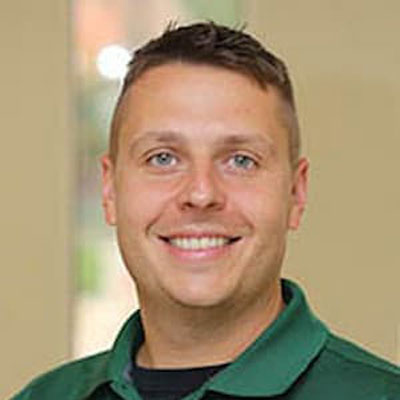Degree Tracks
Get On Track
Choose the path that's right for you.
Whether you're diving into graduate studies directly after your undergraduate degree or seeking to enhance your career with advanced expertise, our program offers a track perfectly suited to your goals. Opt for the Thesis Track to engage with professors in cutting-edge research, the Internship Track for hands on experience with project sponsors in both field and laboratory settings, or the Course-Based Track to move up in the workplace and enhance your skill set.


Thesis Track
(31 credits)
If you want to pursue advanced research opportunities in environmental science and policy, or have career goals that ultimately require formal research training from a hypothesis-driven framework, our thesis track is right for you. If you choose this track, you'll need to find an advisor, who will help supervise your research project.

Internship
(34 credits)
If you need applied experience in the field or lab, but don't need formal research experience, our internship track is right for you. Students in this track seek to combine environmental science and policy with concepts like:
- Sustainable business applications
- Outreach and education
- Policy development and environmental regulation
- Promotion of clinical environmental health and regulation of environmental contaminants
- Environmental consulting
- Invasive species management
- Ecosystem restoration
- Landscape design
You'll be expected to locate, pursue and complete an internship in a setting most aligned with their future career goals. Your chosen internship must incorporate a significant independent project to complete your coursework.

Course-Based
(37 credits)
The course-based track is our most flexible pathway to earning your degree. Most students who choose this track are already employed in the applied environmental science and/or public policy field, but want to build a more competitive foundation.
The course-based track is right for you if you seek:
- Teaching opportunities at the community college level
- Development of advanced skills in environmental consulting, geographic information technology, environmental data analysis, etc.
- A deeper understanding of environmental policy and policy implementation
You may also want to further personalize your degree in areas of education, business or mathematics. Therefore, some elective credits may be substituted from other UW-Green Bay campus programs with approval of the ES&P Program Chair.
Although there is no formal defense or written exam required to earn the degree under this track, you are encouraged to earn elective credits through independent research or internship opportunities with faculty.
Need to Change Tracks?
Internship and Course-Based Track students may switch to the Thesis Track if a project develops through on-campus interactions and an ES&P graduate faculty member agrees to advise you. Please keep in mind you will be admitted as a Course-Based student unless you talk to an advisor.

Let's Connect
Patrick Forsythe is an expert at understanding fish populations. He's also an expert at answering questions from students about our graduate program, too.